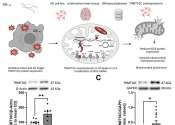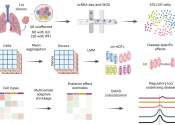Study finds RNA modification is responsible for disruption of mitochondrial protein synthesis in Alzheimer's disease
A team of researchers at Johannes Gutenberg University Mainz (JGU) has identified a mechanism that causes mitochondrial dysfunction in Alzheimer's patients resulting in a reduction of the supply of energy to the brain.
17 hours ago
0
15









